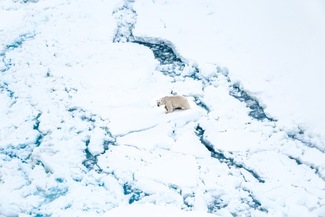Ottawa – Today, on Earth Day, the Minister of Fisheries, Oceans and the Canadian Coast Guard, the Honourable Bernadette Jordan, released Canada’s Oceans Now: Arctic Ecosystems, 2019, the second status report of the annual ocean series. Canada’s State of the Ocean reports are summaries of the current status and trends of marine ecosystems in Canada’s three oceans. Today’s release provides useful educational content for students and all Canadians to read on Earth Day while at home.
The report was co-authored by Fisheries and Oceans Canada, Environment and Climate Change Canada, the Government of Nunavut, and the Fisheries Joint Management Committee. It includes current knowledge and trends for Canadian Arctic marine ecosystems based on scientific findings and Inuit knowledge. It outlines observed sea ice-related ecosystem changes and provides new insight into varying environmental conditions and the connections between ocean and coastal areas.
There are more than 70,000 residents, mainly Inuits, living in 51 communities in the Canadian Arctic whose ocean area represents 41% of Canada’s land mass. There are 176,000 kms of continental coastline from Yukon to Labrador.
“To protect and conserve the Arctic Ocean, we need to understand it, and that can only be done in full collaboration with Inuit and Northern partners who have a wealth of knowledge, experience and traditions to draw upon and gain new insight into the status of our Arctic Ocean,” said Minister Jordan. “During these difficult times of social distancing, this report provides an opportunity for Canadians to learn more about the majestic beauty of our Arctic ecosystems and what we can all do to protect it. “
“The Inuvialuit of Canada’s western Arctic have lived along the shores of the Beaufort Sea for generations and they are alarmed at the rapid changes that they are seeing in the ecosystems they depend upon,” said David Akeeagok, Deputy Premier of Nunavut. “This report demonstrates how the traditional knowledge of the Inuvialuit, their observations of change in ice patterns, weather, movements and habits of fish and marine mammals and their understanding of the interconnections of the Arctic ecosystems can, in collaboration with western science, work towards achieving that goal.” Report can be viewed at http://www.dfo-mpo.gc.ca/oceans/soto-rceo/arctic-arctique/publications/public-report/index-eng.html
Photo by Katrin York





